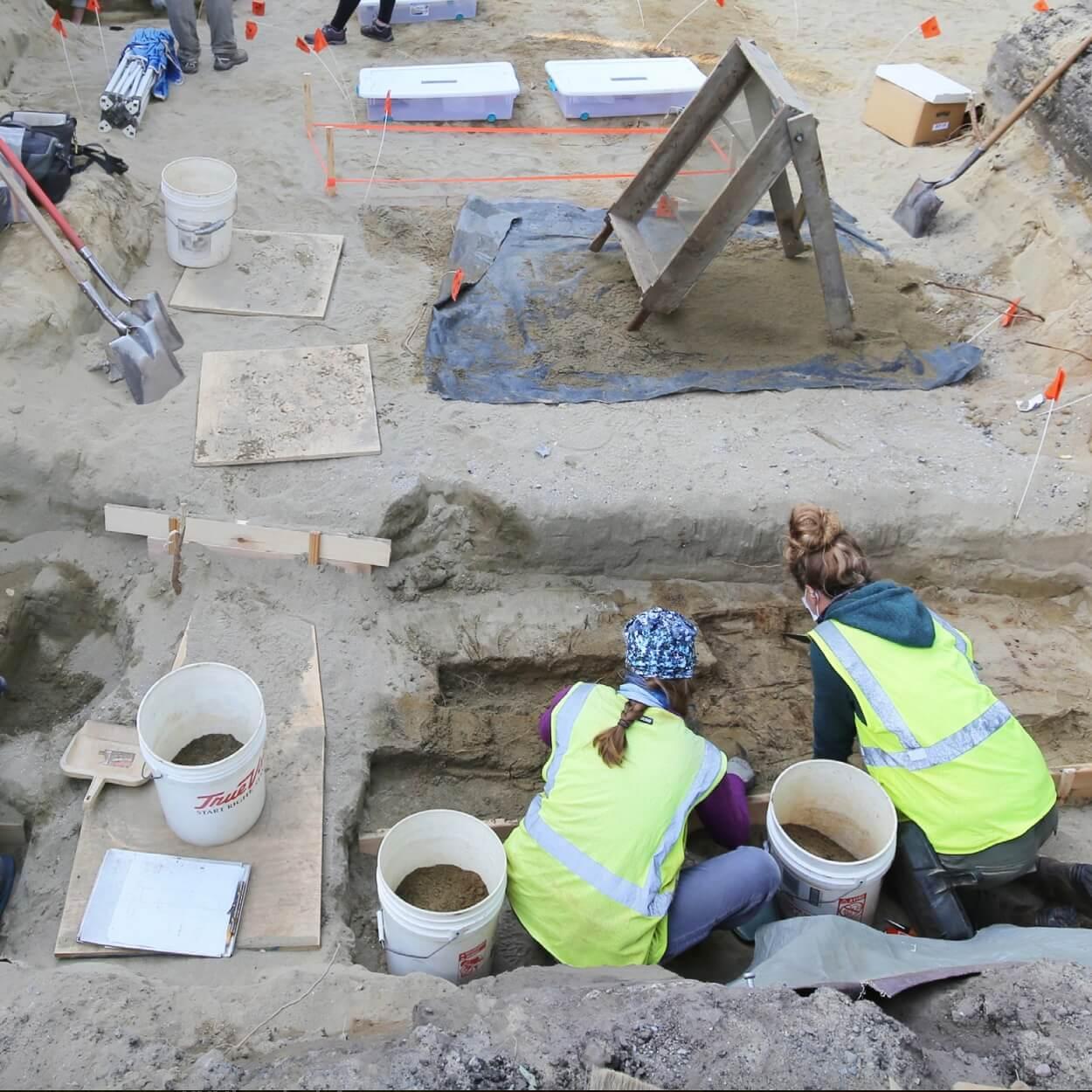Research News
Professor Jennifer Dickinson Wins Fulbright
Professor Jennifer Dickinson received a Fulbright U.S. Scholar Program grant to Ukraine from the U.S. Department of state and J. William Fulbright Foreign Scholarship Board. Her research topic is “Lviv’s Deaf Community: Language and Identity in a Time of Transition,” a project that combines ethnographic and oral historical research to understand continuity and change in the identity of members of the deaf community in a mid-sized Ukrainian city. Professor Dickinson’s research is focused on adult Deaf Ukrainians and their work lives. To better understand how use of Ukrainian Sign Language (USL), professional training and work history, and recent political changes in Ukraine all contribute to identity, Professor Dickinson will be in the field for four months, spending time with adult Ukrainians in professional training courses, at a factory owned by the Ukrainian Society for the Deaf, and at events for retired members of the community.
Anthropology Faculty Awarded UVM CAS Grants
Three anthropology faculty members, Jennifer Dickinson, Teresa Mares and Jeanne Shea, were awarded research and teaching grants from UVM’s College of Arts and Sciences.
Jennifer Dickinson was awarded CAS International Travel Funds to present a paper at the Association for East European and Eurasian Studies/International Association for Humanities (ASEEES-MAG joint conference) in Lviv, Ukraine, in June/July 2016.
Teresa Mares received an Enhancing Excellence through Interdisciplinary Experiential Engagement Grant of $7693 for her project with Rachael Montesano (Romance Languages and Linguistics) titled “Food in the Field: Enhancing Collaboration with Spanish-speaking Farmworkers in Vermont.” Mares and Rachael Montesano (UVM Romance Languages and Linguistics) brought together their SPAN 052 and ANTH 296 courses in the Spring of 2017 in an interdisciplinary exploration and engagement with topics related to food and migration for farmworkers in the United States. Through focusing in on the lives of migrant farmworkers in Vermont, Montesano and Mares bridged their students’ interests in language acquisition, labor studies, and culture to better acquaint them with the food system that surrounds them and the workers who maintain it. The initiative brought together students studying Spanish and anthropology through a high-impact series of participatory research projects and experiential engagements, culminating in a culture sharing meal with farmworkers and students. This collaboration impacted UVM CAS students by giving them the opportunity to put into action their classroom learning and connect firsthand with individuals whose cultures and labor are contributing to the state’s diversity and working landscapes.
Jeanne Shea was awarded a CAS Faculty Research Support Award, with special designation as the Joan Smith Faculty Research Award, for her project on Urban to Rural Extension of the Senior Companions Programs in the U.S. and China: Societal Use of Older Adult Volunteers to Support Community-Based Aging in Place. Jeanne was also awarded CAS International Travel Funds to present a paper at the Society for East Asian Anthropology Conference in June at Chinese University of Hong Kong. While in Hong Kong, she conducted field research on the Peers for Progress volunteer program, which was the immediate inspiration for the Senior Companions program in Shanghai where she has conducted research.
Professor Luis Vivanco Featured in YouTube Series
Professor Luis Vivanco was featured in an Oxford University Press video series on contemporary cultural anthropology, offering perspectives on his career, issues of current interest in the field, and his textbook with Oxford, Cultural Anthropology: Asking Questions About Humanity.
Dr. John Crock Presents to Annual Meeting of the Anguilla Archaeological and Historical Society
Dr. John Crock, associate professor of anthropology and Director of the Consulting Archaeology Program at UVM, recently co-presented at the Annual General Meeting of The Anguilla Archaeological and Historical Society, along with Dr. David Watters. Their presentation was recently featured in The Anguillan, the weekly independent newspaper of Anguilla. Dr. Crock was also recently elected as a director on the Executive Board of the International Association for Caribbean Archaeology.
Professor Teresa Mares New Columnist for Quarterly Journal
Professor Teresa Mares has been asked to serve as a quarterly columnist for the Journal of Agriculture, Food Systems, and Community Development. Her column, “Cultivating Comida” will focus on the themes of food justice and race/ethnicity in the food system, with a specific focus on Latinx communities and immigrants. Her first column "Finding Comida in Our Everyday Lives" was published in 2017.
Professor John Crock’s Caribbean Research Highlighted
‘Marineness’, the Underwater Seascape and Variability in Maritime Adaptations in the Late Ceramic Age Northern Lesser Antilles
by John G. Crock, Nanny Carder and Wetherbee Dorshow, published in Environmental Archaeology: The Journal of Human Palaeoecology
To investigate potential variation between the fishing practices of contemporaneous Late Ceramic Age villages in the northern Lesser Antilles, we model expectations for each site based on local marine habitat and bathymetry and compare them to observed differences in zooarchaeological assemblages. The predictive model approximates which taxa were the most likely to have been targeted by fishers from each site, assuming that the majority of fishing likely occurred within short distances from each settlement. A comparison of expectations and archaeological observations is used to expose potential differences between sites in preferred fishing areas and techniques, preferred foods, or social distinctions. This variability is argued to reflect a fishing community’s ‘marineness’, or the interrelationship members have with the unique composition of marine resources and underwater seascape adjacent to their villages.
Professor Luis Vivanco and Collaborators Awarded NEH Grant
Luis Vivanco’s collaborations has resulted in a prestigious NEH grant. This important project was designed to broaden the image of the “Vermont farmer” to include the diversity of individuals represented in Vermont agriculture.
